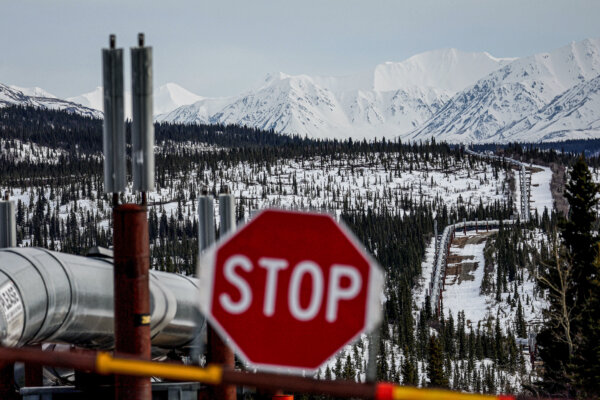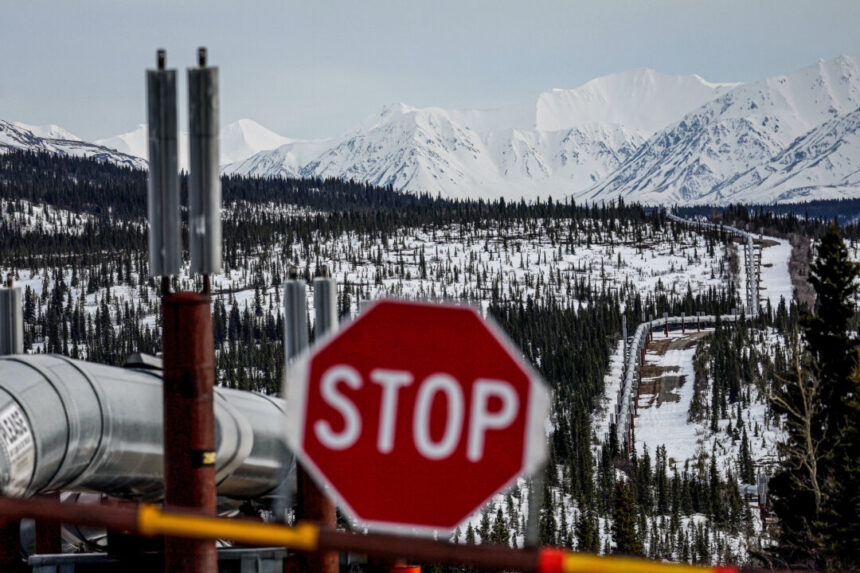
The President of Voice of the Arctic Iñupiat criticized the Biden administration for claiming to be the most Indigenous friendly while not living up to its own rhetoric.
Environmental and climate change advocates are applauding the Biden administration’s drilling moratorium on nearly half of the National Petroleum Reserve in Alaska, but experts are warning of the negative impacts.
The U.S. Department of the Interior announced on April 19 that the Bureau of Land Management (BLM) had finalized a rule to ban oil and gas drilling on over 13 million acres in the Western Arctic.
The BLM also released its Final Supplemental Environmental Impact Statement, denying re-approval of the Ambler Road project that was proposed by the Alaska Industrial Development and Export Authority (AIDEA) in September 2022.
While these actions have received praise from environmental advocates, critics argue that they will have negative effects on the local economy and national security.
Senior Policy Lead for Energy Transition at Evergreen Action, Mattea Mrkusic, described the rule as a necessary step to protect Special Areas, expressing a desire to work with the administration to end oil and gas drilling on public lands.
Earthjustice attorney Jeremy Lieb applauded the move, calling for further action to keep the fossil fuel industry out of the Arctic for the sake of the climate and future generations.
Critics argue that these actions will harm the economy and undermine America’s national security by reducing domestic energy independence without viable alternatives in place, particularly with the increasing demand for energy due to digitalization and AI usage.
Diana Furchtgott-Roth, a policy expert at The Heritage Foundation, expressed concerns that the drilling ban sends a message that production of oil, natural gas, and critical minerals is not supported by the administration.
She emphasized the importance of not depending on China for critical materials and highlighted the competition for these minerals in the Arctic waters.
‘Misguided’
Alaska’s economy relies heavily on oil production, with a majority of available jobs in the oil and mining industries.
The state is a significant source of various minerals essential for renewable energy technology and electric vehicle batteries, such as gold, silver, copper, and rare earth elements.
The denial of the Ambler Road project approval will hinder future mining activities in the region due to the lack of access roads for mining companies.
Managing Director of Ambler Metals, Kaleb Froehlich, expressed disappointment in the administration’s decision to block the project, citing the negative impact on jobs, tax revenues, and economic investment in Native communities.
With Alaska’s unemployment rate already above the national average, Froehlich predicted further economic losses due to the new restrictions.
He also warned that the rules would hinder the development of a domestic supply of critical minerals essential for clean energy technology and national security.
Some indigenous community leaders voiced opposition to the drilling curbs, with Voice of the Arctic Iñupiat President Nagruk Harcharek accusing the administration of disregarding the wishes of indigenous people and failing to live up to its Indigenous-friendly claims.
Harcharek warned that the move would reverse progress, impoverish communities, and endanger their culture, highlighting a concerning trend by the administration.
In contrast, Executive Director of Alaska Wilderness League, Kristen Miller, expressed excitement about the decisions, noting that the drilling moratorium would protect ecologically significant areas in the Arctic.
She praised President Biden’s history on climate change and described the new rules as part of the solution to combat the biodiversity crisis.
‘This is No Gift’
Ms. Furchtgott-Roth criticized the Biden administration’s drilling ban, stating that it discourages investment in oil and gas infrastructure and increases dependence on foreign countries for critical minerals.
She highlighted the potential impact on gas prices for American consumers and the contradiction between the drilling ban and the administration’s push for electric vehicles.
Considering the current gas prices, she warned that the drilling restrictions send a negative signal to the market.
Ms. Furchtgott-Roth also pointed out the conflict between the drilling restrictions and the administration’s plans for expanding electric vehicle infrastructure.
She suggested that the timing of the announcement was politically motivated and criticized it as a public relations move ahead of Earth Day.
President Biden cited climate change and conservation in a statement justifying the actions, emphasizing the need for urgent climate action and protection of natural resources.





